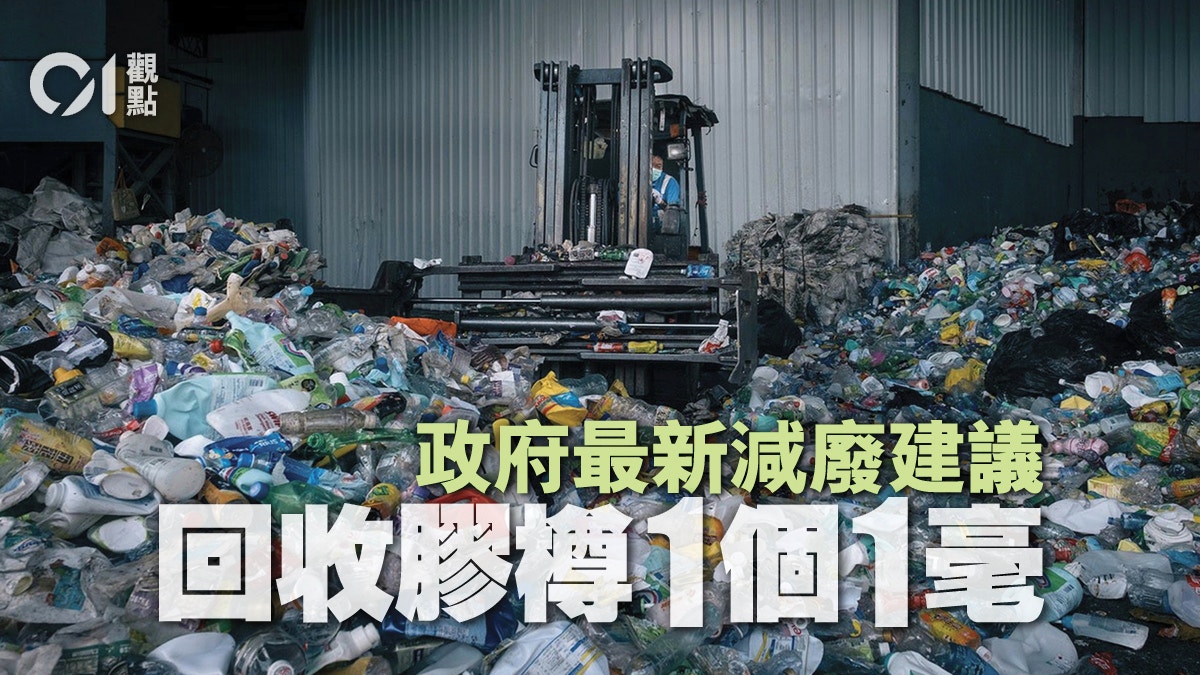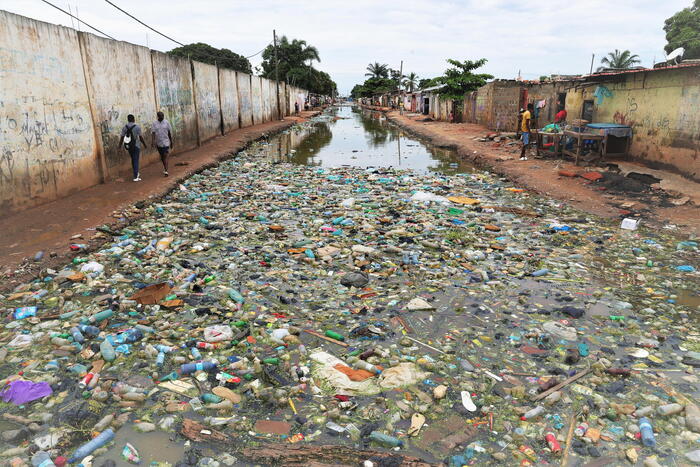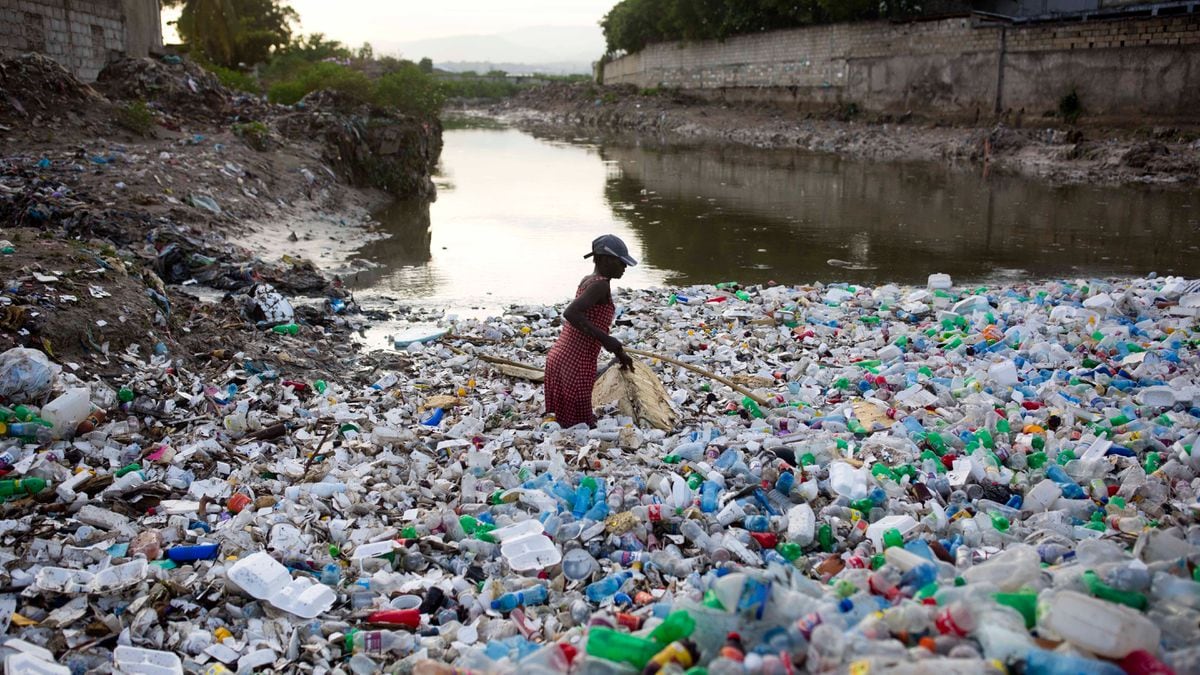01 view
Written by: Commentary Editing Room
2021-02-24 06:45
Last update date: 2021-02-24 06:45
The Environmental Protection Agency started a public consultation on the "Plastic Beverage Container Producer Responsibility Program" on Monday (22nd). The agency stated that in order to implement the "polluter pays" principle, it is studying the collection of recycling levies from manufacturers and importers. And to provide a rebate of 1 cent for each citizen who returns the plastic container.
The plastic recycling rate in Hong Kong has been sluggish for a long time. In 2019, only 8% of plastic was recycled, and the recycling rate of PET plastic bottles was less than 1%.
The government's promotion of the "Plastic Beverage Container Producer Responsibility Program" is the right direction.
However, the consultation document did not mention the recycling target. For example, the recycling rate must be increased to 50% after the plan is implemented for three years. Without a recycling target, it is difficult to evaluate the effectiveness of the plan.
The Environment Bureau should add it in due course.
A dime rebate has limited appeal
In terms of process, the recycling levy collected by the Producer Responsibility Program from producers or importers consists of a "rebate fee" (the cost of collecting and disposing of plastic bottles) and a "rebate" (the amount received when the public returns the plastic bottles) Both are composed.
According to estimates by consultants appointed by the government, if a citizen receives a 1 cent rebate for every plastic bottle returned, the recycling levy will range from 5 cents to 6.5.
In theory, the rebate received by the public is paid by the manufacturer or the importer. The problem is that the company may also increase the price of the product and transfer part of it to the consumer.
The Environmental Protection Department pointed out that after taking into account the experience of other voluntary programs and the market price of recyclables, it recommends a 1 cent rebate for each plastic bottle as the starting point for the plan.
However, whether 1 cent can attract the public to recycle plastic bottles has aroused a lot of discussion in the community. Among them, environmental protection groups think that the rebate amount is too low and should be increased to 5 cents per plastic bottle.
Increasing the amount of rebate can certainly attract the public to participate more actively in recycling plastic bottles, but by then the recycling levy that producers must pay for each plastic bottle may range from 9 cents to $1.
The government should study increasing the rebate for plastic bottles to the level of 5 cents, and attach a policy of levy reduction and exemption to encourage producers to participate in the collection and recycling of plastic bottles in exchange for partial exemption, so as to avoid passing on.
This time the government levies recycling levies on producers or importers. Although the details still require further discussion by the society, the principle of producer pays itself is still worthy of recognition.
(Data Picture / Photo by Zeng Ziyang)
Expanding the scope of recycling levy
This time the government levies recycling levies on producers or importers. Although the details still need to be further discussed by the community, the principle of producer pays itself is worthy of recognition.
On this basis, the government should gradually extend the levy plan to other plastic products, rather than confined to the levy on plastic beverage containers.
According to the Hong Kong Solid Waste Monitoring Report in 2019, plastic waste accounted for 21% of the total waste in Hong Kong. However, the polyester fiber plastic bottles (PET bottles) related to this plan only accounted for 5.2% of the plastic waste, which is much lower than Plastic tableware and styrofoam tableware accounted for 8.6%.
From the data point of view, although the plastic bottle producer responsibility system can be said to be an important step, the plastic beverage container producer responsibility plan is still not enough to reverse the situation in order to slow down the consumption of plastic in Hong Kong.
In the future, Hong Kong should build on the implementation experience of this plan and extend the polluter pays principle to plastic packaging other than beverages, such as plastic cups that are not included in this plan, and bags made of laminated aluminum foil and other composite materials. For beverages, etc., manufacturers are encouraged to switch to other materials.
On the one hand, the Producer Responsibility Program forces manufacturers and importers to take responsibility for their environmental impacts. On the other hand, it also provides economic incentives to encourage citizens to participate in recycling. If the recycling levy system can be extended to other products as soon as possible, it is believed to be social The blessing of the future.
Why is the Ombudsman's investigation of waste recycling "three-color barrels" ineffective?
Although the overall waste volume has fallen, the pace of waste reduction cannot be stopped
Shanghai has benefited from waste reduction, Hong Kong has many recycling problems
The Environmental Protection Agency 01 Viewpoint







/cloudfront-eu-central-1.images.arcpublishing.com/prisa/2RQK76CJRZCS5KCBA56WRJ5CEU.jpg)

/cloudfront-eu-central-1.images.arcpublishing.com/prisa/ILLMSM3CL5EZTGR5TPAFNGGS6Y.jpg)

/cloudfront-eu-central-1.images.arcpublishing.com/prisa/KMEYMJKESBAZBE4MRBAM4TGHIQ.jpg)



